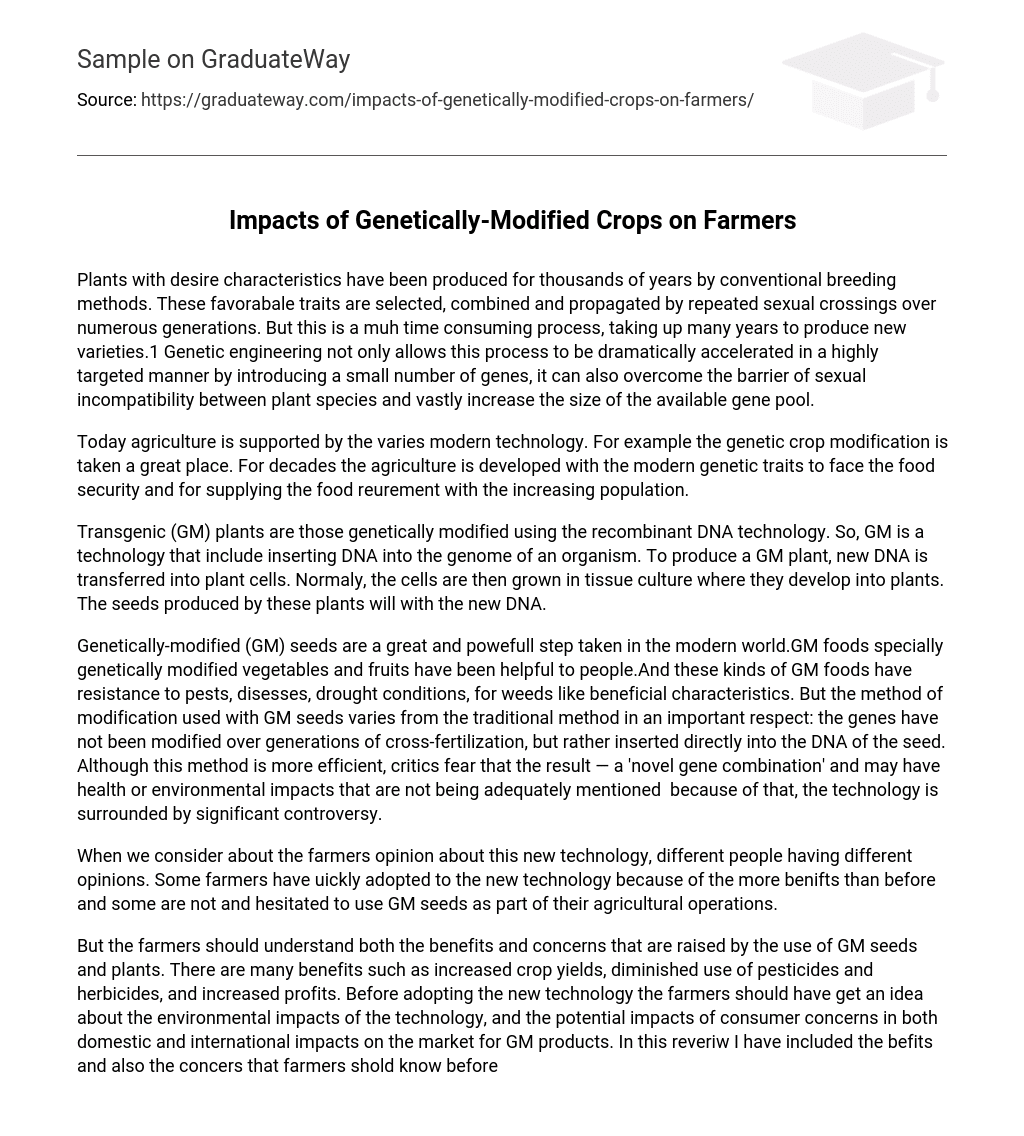Plants with desire characteristics have been produced for thousands of years by conventional breeding methods. These favorabale traits are selected, combined and propagated by repeated sexual crossings over numerous generations. But this is a muh time consuming process, taking up many years to produce new varieties.1 Genetic engineering not only allows this process to be dramatically accelerated in a highly targeted manner by introducing a small number of genes, it can also overcome the barrier of sexual incompatibility between plant species and vastly increase the size of the available gene pool.
Today agriculture is supported by the varies modern technology. For example the genetic crop modification is taken a great place. For decades the agriculture is developed with the modern genetic traits to face the food security and for supplying the food reurement with the increasing population.
Transgenic (GM) plants are those genetically modified using the recombinant DNA technology. So, GM is a technology that include inserting DNA into the genome of an organism. To produce a GM plant, new DNA is transferred into plant cells. Normaly, the cells are then grown in tissue culture where they develop into plants. The seeds produced by these plants will with the new DNA.
Genetically-modified (GM) seeds are a great and powefull step taken in the modern world.GM foods specially genetically modified vegetables and fruits have been helpful to people.And these kinds of GM foods have resistance to pests, disesses, drought conditions, for weeds like beneficial characteristics. But the method of modification used with GM seeds varies from the traditional method in an important respect: the genes have not been modified over generations of cross-fertilization, but rather inserted directly into the DNA of the seed. Although this method is more efficient, critics fear that the result — a ‘novel gene combination’ and may have health or environmental impacts that are not being adequately mentioned because of that, the technology is surrounded by significant controversy.
When we consider about the farmers opinion about this new technology, different people having different opinions. Some farmers have uickly adopted to the new technology because of the more benifts than before and some are not and hesitated to use GM seeds as part of their agricultural operations.
But the farmers should understand both the benefits and concerns that are raised by the use of GM seeds and plants. There are many benefits such as increased crop yields, diminished use of pesticides and herbicides, and increased profits. Before adopting the new technology the farmers should have get an idea about the environmental impacts of the technology, and the potential impacts of consumer concerns in both domestic and international impacts on the market for GM products. In this reveriw I have included the befits and also the concers that farmers shold know before using geneticly modified plants and seeds.





